- Home
- Roy J. Snell
Gypsy Flight Page 13
Gypsy Flight Read online
Page 13
CHAPTER XIII SUSPECTS
The small city--scarcely more than a large village--that Florence foundherself entering that morning was, at this season of the year, a placeof enchanting beauty. Half hidden by the New England hills, its whitehomes surrounded by trees and shrubs turned by the hand of a masterartist, Nature, into things of flaming red and gold, it seemed thesetting for some marvelous production in drama or opera.
"It--it seems so unreal," she whispered to herself. "The hillside allred, orange and gold, the houses so clean and white. Even the women andchildren in their bright dresses seem automatic things run by springsand strings."
Finding herself half-way up a hill, on one side of which a wholeprocession of very small houses, all just alike, appeared to bestruggling, she paused to stare at a sign which read: "Room for rent."
"How could they rent a room?" she asked herself. "The house is littlemore than a bird's nest."
Consumed by curiosity, she climbed the narrow steps and knocked at thedoor.
A small lady with prematurely gray hair appeared. "I came to ask aboutthe room," Florence said in as steady a tone as she could command.
Next instant she found herself in a house that made her feel very large.The hall was narrow, the doors low, the rooms tiny.
"This is the room." She was led to what seemed the smallest of the fourrooms.
"But this is already occupied." She looked first at the display ofsimple toilet articles on the dresser, then at the half-filled closet.
"Oh yes, our daughter Verna has it now," the little lady hastened toexplain. "But she--she's to sleep in our--our general room."
"The one they use for parlor, living room and dining room," Florencethought to herself. "How terrible!"
She was about to say politely, "I guess I wouldn't be interested," whena young and slender girl of surprising beauty stepped into the doorway.
"Here is Verna now," her mother said simply.
"Yes, here she is," some imp appeared to whisper in Florence's ear, "andyou are going to take this room. You will have to now. You are going tobuy a small bed and share the room with this beautiful child. You willcast your lot with this little family. You have seen her. It is too lateto turn back now."
Perhaps if he had been a very wise imp he might have added, "This stepyou are taking now will bring you into grave danger, but that does notmatter. You will take the room all the same, and like it." But the imp,being of a very ordinary sort, did not say this.
Florence _did_ take the room. She _did_ buy herself a very narrow bedand she _did_ share this small room in this canary-cage of a house withthe beautiful girl. And, strangest of all, she became very happy aboutit almost at once.
The life into which she found herself thrown was strange indeed. She hadlived in a small mid-western city where there was no mill or factory.She had lived in a great city. In each place she had found companions ofher own sort. But here she was thrown at once into a community of smallhomes owned by people whose incomes had always been small and who lookedout upon the world beyond their doors with something akin to awe. ToFlorence all this was strange.
Her task, that of finding the industrial spy, she believed to be an easyone. In the privacy of his inner office, she said to Danby Force, "Mostof these people have lived here all their lives. You could not make aspy of them if you chose. All I have to do is to find out the ones whohave been here a short time. It must be one of these."
"You are probably right," the young man agreed. "Not so many of themeither, perhaps a dozen. I shall see that you have their namestomorrow."
On the morrow she had the names. And, after that, one by one, in themost casual manner she looked them up. There were, she found, twomiddle-aged, dark-complexioned sisters named Dvorac, expert weavers wholived in a mere shack at the back of the city. Miriam, the taller of thetwo, appeared to be the leader. "Might be these," she told herself."They resemble the one who escaped."
There was a little weasel-faced German who excited her suspicion atonce. He was an expert electrician of a very special sort. He was incharge of the hundreds of motors that ran the looms and spinningmachines. He was, of course, all over the place. "Finest chance in theworld," she told herself. "And he appears to be always prying about,even when nothing seems wrong." This man's name was Hans Schneider.
There was a girl too, one about her own age, who came in for her fullshare of suspicion. She worked in the dyeing room. The very first dayFlorence caught her slipping out with an ink bottle. The bottle wasfilled with dyeing fluid. "I only wanted to dye a faded dress," the girlexplained reluctantly. "You'd want to do that too if you hadn't had anew dress for four years."
Florence guessed she would. She wanted to accompany the girl home, butdid not quite dare. So she suggested that the bottle be taken to thefloor supervisor and permission obtained for its removal.
The girl, who called herself Ina Piccalo (a strange combination ofnames) flashed Florence a look of anger as she obeyed instructions.
"Her eyes are black as night," Florence told herself. "She'd lookstunning in a gown of deep purple and the dye is just that. I'll belooking for that gown," she told herself as a moment later, with a flashof her white teeth, Ina passed her, the bottle still in her hand.
This was the only instance in which Florence interfered in any way withthe actions of the employees of the mill. She was, to all appearances,only a young welfare worker whose business it was to make everyonehappy, with special interest in the children of the city.
This part she played very well. Long hours were spent in the mill'sgymnasium and social house, and upon its playgrounds. Not a week hadpassed before this stalwart, rosy-cheeked girl was known to every childof the city, and nearly every grown-up as well. "That's her," she wouldhear them whisper as she passed. "That's the Play Lady." Yes, she wasthe Play Lady; but much more than this, she was the Lady Cop, thedetective who, she hoped, in time was to free their happy little cityfrom the dark cloud that, all unknown to the greatest number, hung overthem.
Yes, this truly _was_ a happy city. Florence grew increasingly consciousof this as the days went by. The mill she found enchanting. The littlecity with its clean white homes, surrounded by the golden glow ofautumn, was indeed a place where one might long to linger.
"Just now," she said to herself, "I feel that I could love to live hereforever."
This mood, like many another in her strange, wandering life, she knewall too well, would pass. "And I must not allow myself to be lulled intoinaction by it all," she told herself. "There is the spy. I _must_ findthe spy. Even now he may be gathering up his stolen secrets andpreparing to carry them away to some other city, or even across thesea."
But how was one to catch a spy? Every moment of each day she waswatching, watching, watching. And yet, save for the rather simple matterof Ina Piccalo's carrying away a bottle of purple dye, nothing unusualhad caught her eye.
"I may fail," she told herself, "fail utterly." Yet she dared to hopefor a turn of the wheel of fortune--"the lucky break" as the smilingWillie VanGeldt would have called it.

 On the Yukon Trail
On the Yukon Trail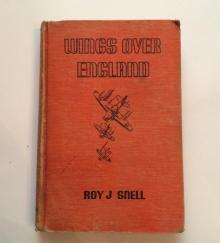 Wings over England
Wings over England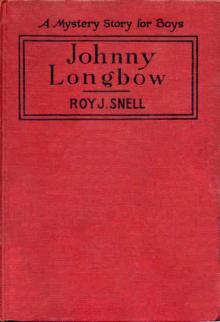 Johnny Longbow
Johnny Longbow Sally Scott of the WAVES
Sally Scott of the WAVES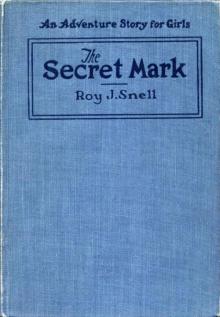 The Secret Mark
The Secret Mark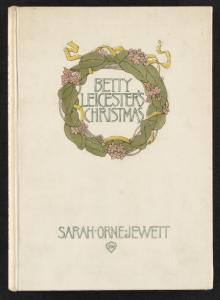 Betty Leicester's Christmas
Betty Leicester's Christmas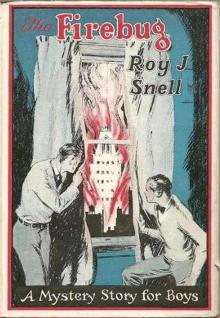 The Firebug
The Firebug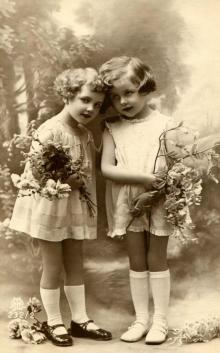 Minnie Brown; or, The Gentle Girl
Minnie Brown; or, The Gentle Girl Jack the Hunchback: A Story of Adventure on the Coast of Maine
Jack the Hunchback: A Story of Adventure on the Coast of Maine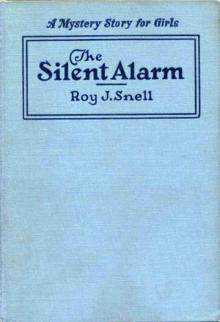 The Silent Alarm
The Silent Alarm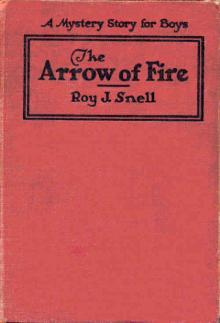 The Arrow of Fire
The Arrow of Fire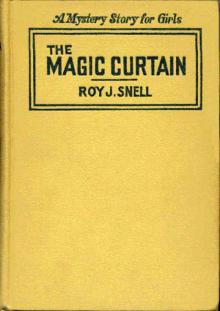 The Magic Curtain
The Magic Curtain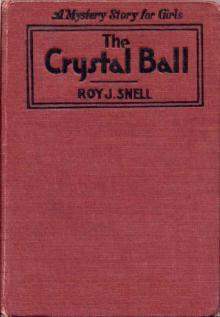 The Crystal Ball
The Crystal Ball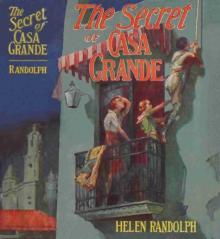 The Secret of Casa Grande
The Secret of Casa Grande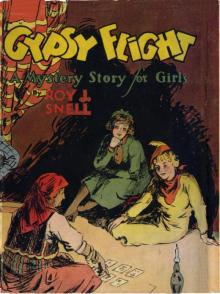 Gypsy Flight
Gypsy Flight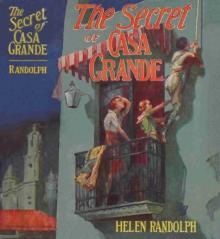 The Mystery of Carlitos
The Mystery of Carlitos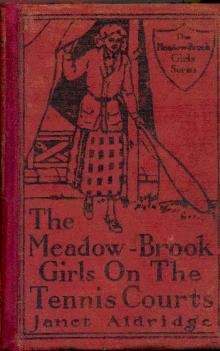 The Meadow-Brook Girls on the Tennis Courts; Or, Winning Out in the Big Tournament
The Meadow-Brook Girls on the Tennis Courts; Or, Winning Out in the Big Tournament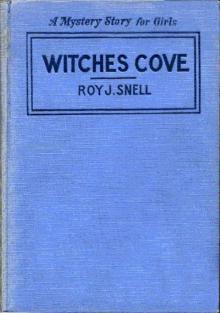 Witches Cove
Witches Cove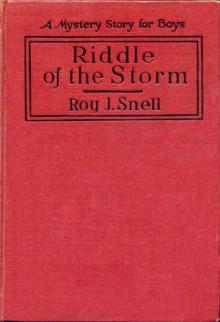 Riddle of the Storm
Riddle of the Storm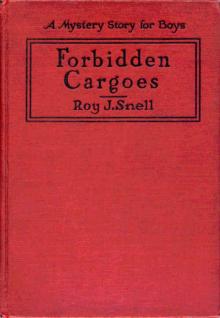 Forbidden Cargoes
Forbidden Cargoes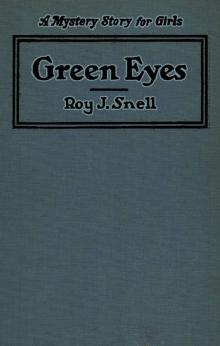 Green Eyes
Green Eyes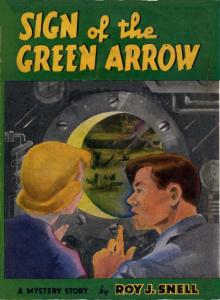 Sign of the Green Arrow
Sign of the Green Arrow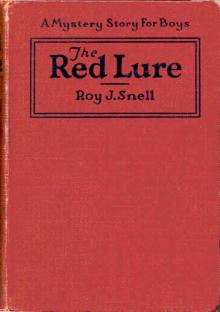 The Red Lure
The Red Lure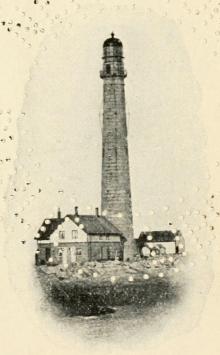 The Light Keepers: A Story of the United States Light-house Service
The Light Keepers: A Story of the United States Light-house Service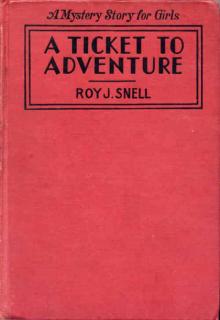 A Ticket to Adventure
A Ticket to Adventure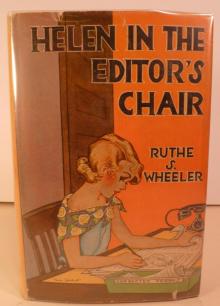 Helen in the Editor's Chair
Helen in the Editor's Chair Blue Envelope
Blue Envelope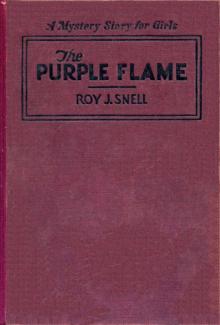 The Purple Flame
The Purple Flame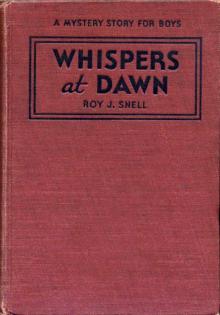 Whispers at Dawn; Or, The Eye
Whispers at Dawn; Or, The Eye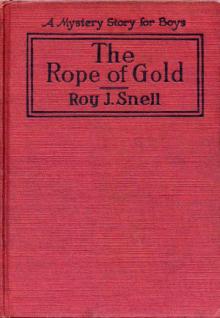 The Rope of Gold
The Rope of Gold Crossed Trails in Mexico
Crossed Trails in Mexico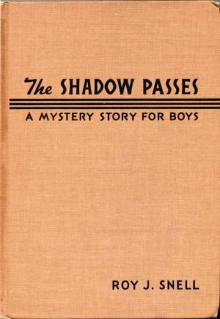 The Shadow Passes
The Shadow Passes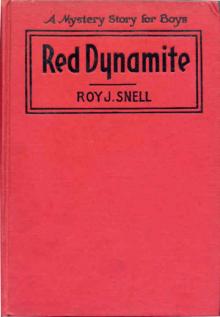 Red Dynamite
Red Dynamite Blue Grass Seminary Girls on the Water
Blue Grass Seminary Girls on the Water The Cruise of the O Moo
The Cruise of the O Moo